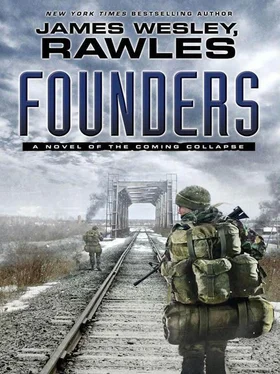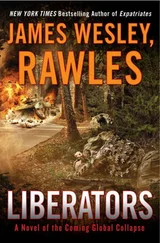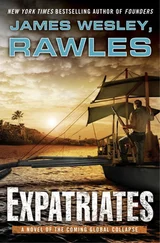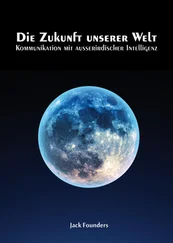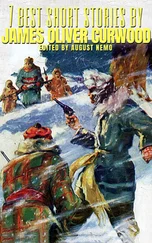James Rawles - Founders
Здесь есть возможность читать онлайн «James Rawles - Founders» весь текст электронной книги совершенно бесплатно (целиком полную версию без сокращений). В некоторых случаях можно слушать аудио, скачать через торрент в формате fb2 и присутствует краткое содержание. Город: New York, Год выпуска: 2012, ISBN: 2012, Издательство: Emily Bestler Books, Жанр: sf_postapocalyptic, на английском языке. Описание произведения, (предисловие) а так же отзывы посетителей доступны на портале библиотеки ЛибКат.
- Название:Founders
- Автор:
- Издательство:Emily Bestler Books
- Жанр:
- Год:2012
- Город:New York
- ISBN:978-1-4391-7282-7
- Рейтинг книги:5 / 5. Голосов: 1
-
Избранное:Добавить в избранное
- Отзывы:
-
Ваша оценка:
- 100
- 1
- 2
- 3
- 4
- 5
Founders: краткое содержание, описание и аннотация
Предлагаем к чтению аннотацию, описание, краткое содержание или предисловие (зависит от того, что написал сам автор книги «Founders»). Если вы не нашли необходимую информацию о книге — напишите в комментариях, мы постараемся отыскать её.
Founders — читать онлайн бесплатно полную книгу (весь текст) целиком
Ниже представлен текст книги, разбитый по страницам. Система сохранения места последней прочитанной страницы, позволяет с удобством читать онлайн бесплатно книгу «Founders», без необходимости каждый раз заново искать на чём Вы остановились. Поставьте закладку, и сможете в любой момент перейти на страницу, на которой закончили чтение.
Интервал:
Закладка:
Brent treated Jedediah’s wounds carefully, and he gave him pain medicine—Tylenol with codeine—only as needed, following a series of “On a scale of one to ten, how would you describe the pain…?” questions. Rather than attempting to stitch the wounds closed, Brent left them loosely covered with gauze to allow drainage. He explained that this was actually the safest way to treat them. “It’ll leave bigger scars, but this way there’s less chance of infection.”
As Brent was rebandaging one of the wounds, Jedediah winced with pain and said, “I always figured we’d get raptured before we’d ever go through anything like this.”
Brent shook his head slowly and replied, “You mean the collapse and the invasion? I believe that’s the same thing that some people were saying in Stalingrad during World War II.”
“You know,” Brent went on, “in Vermont I had a neighbor who lived down the road from me. He and his family starved and froze to death the first winter after the Crunch. He and his wife were totally convinced that they’d be raptured before any disaster would threaten them. He told me that he thought that storing food in anticipation of hard times was a display of a lack of faith in God’s providence. He used to give me a hard time for being a prepper.”
The young man nodded, and Brent continued, “A lot of well-meaning believers have the same sort of complacency. That dispensational pre-tribulation rapture nonsense was often combined with their bogus ‘Health, Wealth, and Prosperity’ preaching. They have a similar eschatological basis. It is the whole ‘Beam Me Up’ mind-set. It goes along with the ‘Feel Good, Jesus Is Your Buddy’ mentality. But if the history of the church has taught us anything, it is that the life of a Christian is fraught with peril. The world hates us, and everything that we stand for. They pound on us as often as they can. Being a Christian doesn’t exempt us from that. If anything, it actually means that we’ll get more pain and suffering inflicted on us than non-Christians. Just look at Foxe’s Book of Martyrs. Have you read that?”
“No.”
“Well you should, if you can ever find a copy. All that bad doctrine from the new Emergent Church movement led a lot of deceived Christians to be complacent toward being prepared for themselves and their loved ones. Everyone got a rude awakening when the dollar crashed and the power grids went down. The proper Christian way to live is to stock up for your family, and that also gives you extra to dispense as charity.”
Sheila’s elderly grandmother Lily relayed messages about the care of Jedediah downstairs to Sheila, who was working at her store’s front counter most of the day. Sheila asked Lily to carry up extra food and some fresh cream that she took in trade on a barter transaction.
The Norwood Ranch, Newell, South Dakota
April, the Third Year
When Curt was hired, Ken and Terry decided that it was time to press on. They felt good departing, knowing that Curt would be there to fill the security role they had occupied. They were almost ready to leave at any time, except that Ken’s boots were worn out and starting to fall apart. With some inquiries via the local CB radio network, they found some tan suede military surplus boots that were snug, but his size. They were comfortable if he wore just one pair of socks, but not two as he had with his old boots. The boots were a gift from the Norwoods, who insisted that they buy them to compensate the Laytons for their many months of guard duty, manure hauling, and water hauling. They cost $2.25 in silver quarters.
Looking carefully at their maps, and after much consultation and debate, they decided that rather than trying to cross the Northern Rockies, it would be safer to veer south and get to north-central Idaho by way of the Great Basin. There were many rumors of banditry in eastern Montana. By taking a more southerly route, not only would they be traversing more sparsely populated country, but also the population would be predominantly Mormon. Given the Mormon proclivity for food storage preparedness, they anticipated they would probably be more hospitable to travelers. They also hoped that if they were able to get to Salt Lake City, they might find people with operating vehicles, as there was a large oil refinery just north of the city.
The Norwoods had cousins in Scottsbluff, Nebraska, the Bennet family. They were cousins on Cordelia’s side of the family. It was decided that Graham and the Laytons would ride horseback to Scottsbluff. From there, Ken and Terry would continue west on foot. Meanwhile, Graham would return to Newell with the horses.
For the trip, they selected the Norwoods’ three saddle horses, plus their old mare, Molly, to use as a packhorse. Molly was elderly, but their draft horse Andre was too valuable to the family to put at risk in a cross-country trip. Carrying a packsaddle holding the Laytons’ two ALICE packs and Graham’s bedroll, Molly’s load would be only 110 pounds. The packsaddle was of the modern frameless type, and made of red Cordura nylon. The bright red color made Ken and Terry cringe. The untactical color was remedied by strapping a woodland camouflage quilted poncho liner over the load. This worked perfectly, since the poncho liner already had grommet tie straps spaced around its perimeter, and some extra length was simply tucked between the packsaddle and the saddle pad.
The ride to Scottsbluff was uneventful, and the weather was fairly good, with a few showers. The grazing was sparse for the horses, with just a few patches of new growth. When the horses did pass over any new growth, they would play naughty and put their heads down and pause to graze. Urging them on took some effort. For the sake of their horses, they picked their campsites in areas where there was grass coming up. As was their habit, they made cold camps each night, not wanting to attract attention. With some pasture available, hobbling was all that was necessary to keep their horses in camp.
They averaged forty miles a day. They did their best to avoid towns and any terrain that looked like it would be advantageous for ambushes. After so many months of traveling on foot and at night, travel by horseback in daylight required some adjustment for the Laytons. For the horses, the biggest adjustment was getting used to riding widely spaced apart—typically fifteen to twenty yards when on level, open ground. For the first two days, the horses would invariably attempt to bunch up. It was Molly who proved to be the magnet to the other horses. “I say that we make Molly the caboose of this outfit,” Graham proposed. It was only with that resequencing and some consistent reining that the horses became accustomed to wider intervals.
Graham turned seventeen on the third day of the trip to Scottsbluff. That evening, as they made camp, Ken presented him a cloth sack containing twenty-five rounds of .45 automatic ammunition as a thank-you for escorting them, and in recognition of his birthday.
They avoided the city of Scottsbluff itself, angling in from the northeast, through ranching country. The Bennets lived on Henry Road, northwest of Scottsbluff, a stone’s throw from the Wyoming state line. Arriving saddle sore late in the afternoon of the sixth day, they were warmly greeted. The Bennets lived in an older ranch-style house on four acres. Before the economic collapse, Dale Bennet had been a full-time grassland botanist with the state of Nebraska, and did the same part-time under contract for the state of Wyoming. His specialty was introduced grasses and weeds. He was also involved in a planned decades-long program to reintroduce native grasses. The Bennets had survived since the Crunch by breeding New Zealand and Rex rabbits. The acreage behind their house was dotted with cobbled-together sheds built out of scrap lumber, pallets, and recycled corrugated steel roofing from barns. The sheds held dozens of homemade wire rabbit cages.
Читать дальшеИнтервал:
Закладка:
Похожие книги на «Founders»
Представляем Вашему вниманию похожие книги на «Founders» списком для выбора. Мы отобрали схожую по названию и смыслу литературу в надежде предоставить читателям больше вариантов отыскать новые, интересные, ещё непрочитанные произведения.
Обсуждение, отзывы о книге «Founders» и просто собственные мнения читателей. Оставьте ваши комментарии, напишите, что Вы думаете о произведении, его смысле или главных героях. Укажите что конкретно понравилось, а что нет, и почему Вы так считаете.
